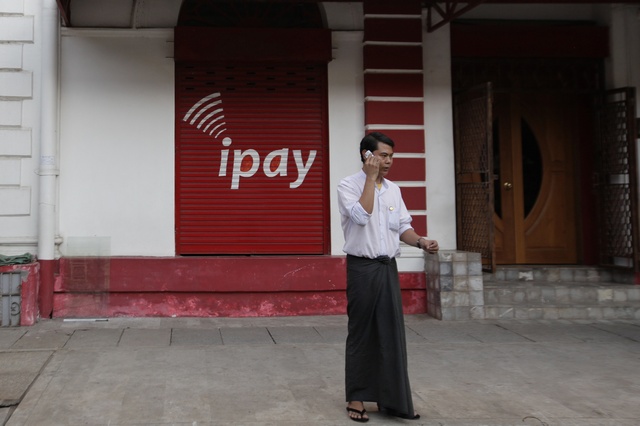Satt Aung, the vice-president of the Central Bank of Myanmar, has painted a rosy picture of the not-too-distant future in a modern Burma where mobile banking and electronic transactions will be the norm for shopping, making payments and even paying for taxis.
Addressing the Union Parliament on Wednesday on the subject of foreign bank operations and the development of domestic banking, Satt Aung said that Burma’s progressively more modern banking technology will soon allow consumers “to shop, buy goods and even pay taxi fares electronically without having to carry a stack of kyat notes around”.
Several private banks, including the Cooperative Bank, have long urged the Central Bank to adopt a mobile banking system; however, implementation has yet to begin.
Cooperatives Bank administrative-director Pe Myint said that even if a system for electronic transactions is applied in Burma, customers will not stop using physical currency.
[related]
“I think the culture of using physical currency will continue to exist – like in Japan or South Korea and such. Maybe we will no longer have to carry stacks of bank notes, but people will still continue to use notes for things like going to a tea shop.”
Likewise, Than Lwin, vice-president of the Kanbawza Bank, expressed scepticism at Satt Aung’s vision.
“This is just his dream – and in his dream, the world has changed – the technologies he talked about are far too advanced for Burmese consumers,” he said.
“Burmese love to physically carry and pay with money. What [Satt Aung] said would make sense if we were a Western nation.”
He said that reliable mobile communication is a necessity for a mobile banking system, and that regulatory laws would have to be adopted first.
“Right now, we don’t have enough skilled professionals in the country to implement an efficient mobile banking system, and we have way too many competing communications systems such as CDMA, CWCDMA and GSM, which are hard to connect with each other,” he said.
“Also we have not yet adopted any legal regulations. In fact, we are very far behind.”



